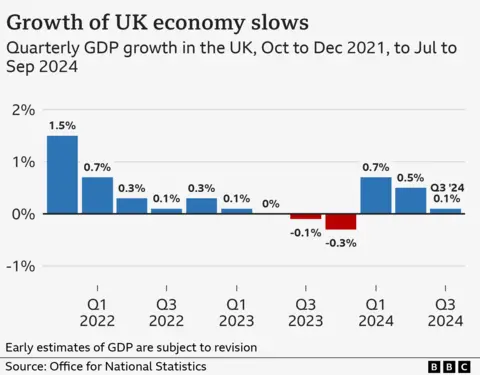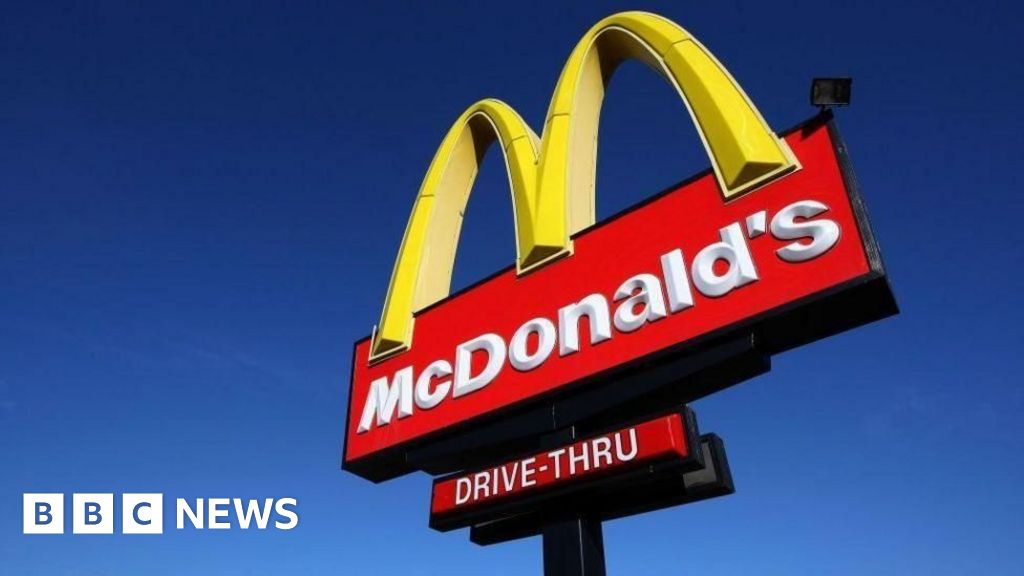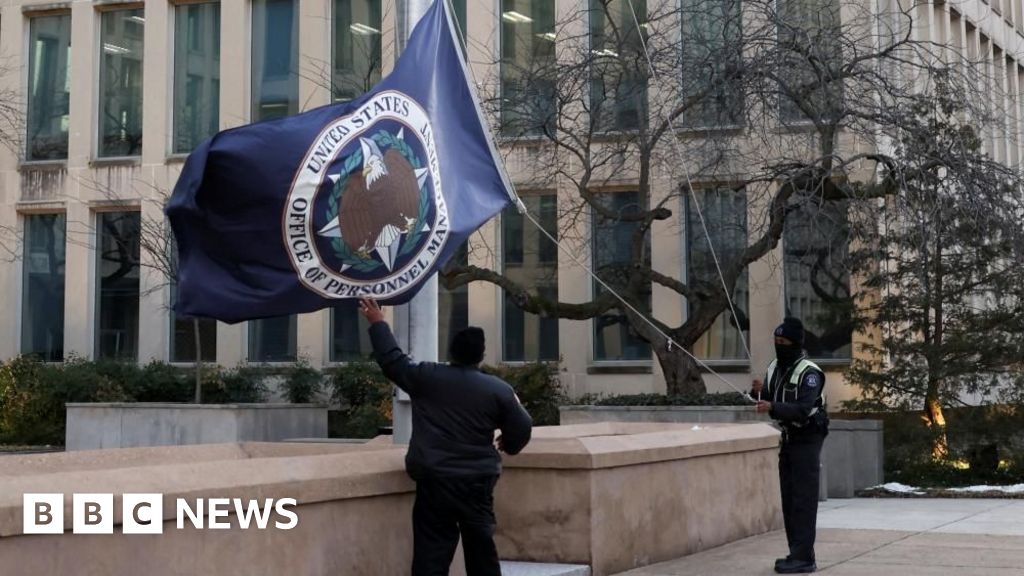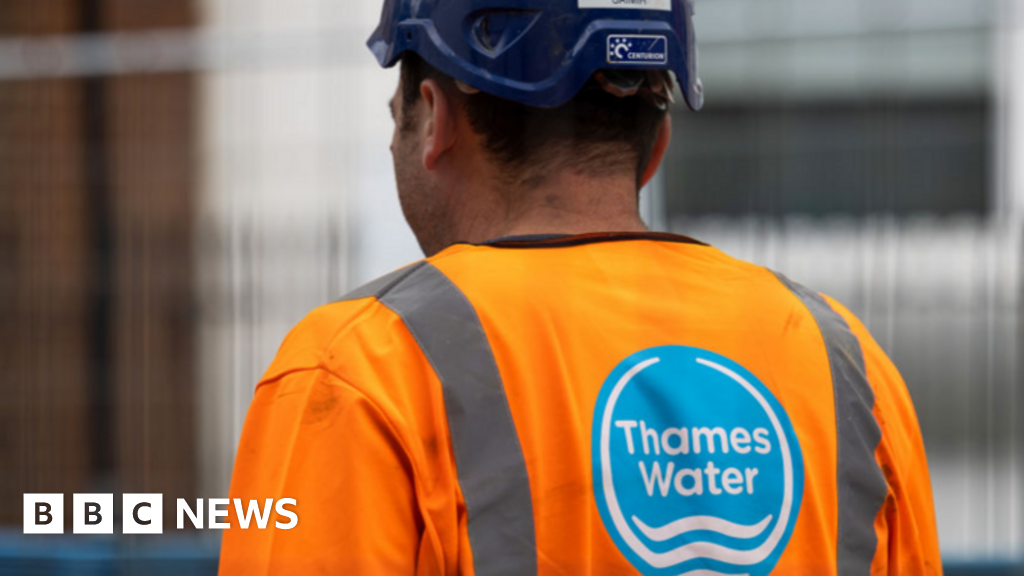
 Getty Images
Getty Images
The UK's economy slowed by more than expected between July and September, with uncertainty about the Budget being blamed for the weak growth.
The economy grew by just 0.1% over the period, and the Office for National Statistics said activity was subdued across most industries.
Labour made boosting economic growth its top priority when it came into power but Chancellor Rachel Reeves said she was "not satisfied" with these latest figures which cover the first three months of the new government.
A number of economists said that concerns about what measures would be included in October's Budget had affected decision making by firms and households.
This was particularly evident in September when the economy contracted by 0.1%.
Ben Jones, lead economist at the CBI business group, said firms had widely reported "a slowdown in decision making" prior to the Budget. He added that once it had been announced it had "set off warning lights for business".
The government is facing a backlash by some businesses who have criticised the tax rises in the Budget.
The increase in National Insurance Contributions for firms together with other measures "is expected to trigger a more cautious approach to pay, hiring and investment", Mr Jones said.


Analysts had expected the economy to grow by 0.2% during the latest quarter, following 0.5% expansion in the April to June period.
“The economy was always going to slow from the famously “gangbusters” pace of the first half of this year, but the extent of the slowdown is a bit more pronounced than expected," said Luke Bartholomew, deputy chief economist at Abrdn.
With September being "particularly weak", he added it was "plausible that some of slowing is the result of elevated uncertainty... as firms and households speculated about possible tax changes ahead of the Budget".
'It felt like people were holding back'


Andy Crisp, manager of pasta and pizza restaurant Vapiano in Manchester, said he had noticed a slight slowdown in the run up to Reeves' Budget.
The summer was “a game of two halves”, he said, which finished quite strongly with sales up between 2-3% from a year ago.
However, the week before the Budget he “did see a downturn” in footfall.
“The only thing we could potentially put that down to was it felt like there was a nervousness prior to the Budget coming out as to ‘what does it mean to me? What does it mean to the general public?’
"So it almost felt like people were holding back to find out what the end result was going to be.”
Growth was affected by a weak performance in the services sector - which accounts for more than three-quarters of the economy.
Economists expect the outlook to remain fairly patchy.
In October, Reeves presented what she called a "Budget for growth".
But the government's independent forecaster, the Office for Budget Responsibility, said the Budget measures would only “temporarily boost” the UK.
It said the size of the economy would be "largely unchanged in five years" compared with its previous estimate.

 Movie
Movie 3 months ago
50
3 months ago
50 





![Presidents Day Weekend Car Sales [2021 Edition] Presidents Day Weekend Car Sales [2021 Edition]](https://www.findthebestcarprice.com/wp-content/uploads/Presidents-Day-Weekend-car-sales.jpg)



 English (United States)
English (United States)